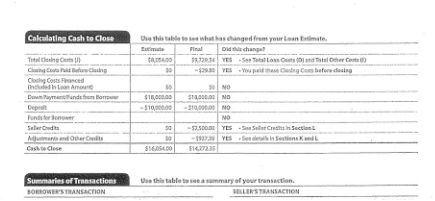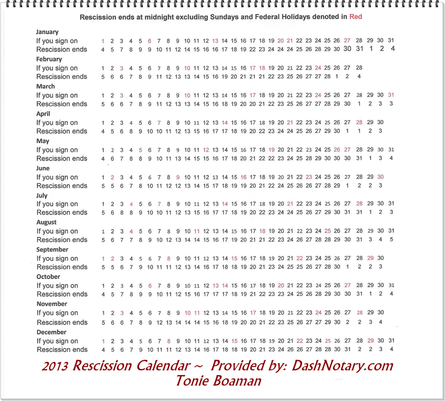|
I see this happening more and more where other companies ( Title , Auto, Lenders and more) are adding fees onto our Dash Notary billing. When I have asked they state, it is to cover the other fees that they can't put on the forms legally .... I would love to have attorney feedback on this.... read on...
State police cite Lititz auto dealership Posted: Aug 15, 2013 3:37 PM CST Updated: Aug 15, 2013 3:37 PM CST By Myles Snyder - email LITITZ, Pa. (WHTM) - A Lancaster County auto sales business has been cited for unprofessional conduct and several summary violations for illegal title activities, state police said Thursday. Brickerville Motors, in Elizabeth Township, was found to be charging customers $305 each for "other faxes and fees" that were not really taxes or fees, but costs for services such as washing cars, changing oil, fuel, and other standard pre-sale activities, police said in a news release. The dealership also failed to incorporate profits from the services into the total taxable amount of the sale, police said. In addition to the misleading charges, Brickerville Motors failed to collect the correct messenger service fees charged by a local notary, according to the release. Police said in one case, the dealership charged the customer $300 for messenger service fees, when the messenger service charged $65. The investigation determined that the dealership illegally verified signatures on titles and submitted them to the notary for processing, police said.
2 Comments
How right Richard is!
Richard Zombeck Founder, Home Preservation Network at www.hpnhelp.com GET UPDATES FROM Richard Zombeck Like 36 It's Business As Usual When It Comes to Foreclosure Posted: 05/02/2013 8:25 am Foreclosure Crisis , Foreclosure Crisis , Wells Fargo , Ocwen , Sigtarp , Business News Five years after the near complete financial meltdown of the economy in this country, resulting in millions of people losing their homes, nothing has really changed. Despite the billions of dollars in settlement fees the banks have shelled out, bad press, and loss of trust, it's pretty much business as usual. Actually, it's more blatant and brazen than ever. Remember HAMP? What about HAMP 2.0? The mortgage modification programs the administration paraded out as a way to save millions of homeowners from foreclosure? The same program that Tim Geithner, during a congressional hearing, flippantly admitted in 2009 was never meant to help homeowners, but more a way to alleviate the stress of too many foreclosures coming in at once. "We estimate that they can handle ten million foreclosures, over time... this program will help foam the runway for them," Geithner said during the hearing, according to Neil Barofsky, the former Special Inspector General of TARP (SIGTARP). In his book, Bailout, Barofsky shows how HAMP's faulty design led to a myriad of problems: trapped borrowers, extended trial payments, no-doc modifications, and eventually unnecessary foreclosures. Barofsky opines in the book that Treasury didn't care about the suffering of borrowers under HAMP and that Geithner's goal was to space out the foreclosures and give the banks time to earn their way back to health -- through the other parts of the bailout, that were more profitable. When HAMP was released in 2009, President Obama made this pretty wild and apparently idealistic claim to a crowd in Arizona: Here's what this means: If lenders and home buyers work together, and the lender agrees to offer rates that the borrower can afford, then we'll make up part of the gap between what the old payments were and what the new payments will be. Under this plan, lenders who participate will be required to reduce those payments to no more than 31 percent of a borrower's income. And this will enable as many as 3 to 4 million homeowners to modify the terms of their mortgages to avoid foreclosure. More than four years later, a measly 862,000 homeowners remain in HAMP permanent modifications. As of March 31, 2013, more than 312,000 homeowners have re-defaulted on their HAMP permanent modification, according to a recent report by the office of SIGTARP. Additionally, SIGTARP is concerned that homeowners are redefaulting on HAMP permanent mortgage modifications at an alarming rate: 46.1% and 39.1% of HAMP modifications from Q3 and Q4 2009 redefaulted, 28.9% to 37.6% from 2010 redefaulted. SIGTARP recommended that Treasury research and analyze the causes of redefaults, develop an early warning system to try and prevent redefaults, and better help homeowners who have redefaulted. The report then points out that Treasury does not require servicers to report on the reasons for redefault: Because redefaults are so harmful to all, Treasury should develop a better understanding of why homeowners redefault, and the characteristics of loans that are more likely to redefault. Better knowledge of the characteristics of the loan, the homeowners, the servicer, or the modification, more prone to redefault will increase Treasury's understanding of the underlying problems that cause redefaults and provide Treasury an opportunity to address these issues proactively. So Treasury puts out a B.S. plan, gives it a catchy name, like Home Affordable Modification Program (HAMP), admits in a congressional hearing that it was meant to help the banks, and can't figure out why it's failing or why homeowners are now defaulting on the lower payments they were not only offered, but promised. Maybe. Just maybe it's business as usual. A neighbor of mine told me last week that her servicer changed from Chase to Ocwen a few months ago. Chase had given her a permanent modification in 2009, which she's been paying faithfully. Last year, Ocwen Financial Corporation took over the loan. Not only did they refuse to honor the modification Chase had granted her, they also raised her monthly payments and are demanding back-payments of the "lost income" resulting from the lowered payments. The Consumer Affairs website has several stories about other homeowners being granted permanent modifications, now being retracted. Here's another Ocwen story: We had a loan modification in place with Chase, then they sold it to Ocwen and several months later, the amount went up by $400. We are attempting to be remodified and everything we send to them is not legible or they never get it. They set up appointments and when you hang up, they say everything is fine, we got all the info. Then one week later, you get a letter saying everything is NOT fine, and you have a week to get the info (and in some cases additional info) that you just sent to them via email to them or else you jeopardize the re-modification. HAMP, this is disgraceful. If they are working in cooperation with you, you need to know that people are being given the runaround. Consumer Action Law Group of Panzarella, Gurevich, & Rode, (CALG) in California, a member of the HPN Trusted Attorney Network and dedicated to helping struggling homeowners, recently contacted me with a case that accurately depicts the egregious display of hubris and blatant homeowner abuse by banks. According to Lauren Rode, a partner at the firm, Rosa Carrillo, of Bakersfield, Calif., entered into repayment plan with JP Morgan Chase in December 2008. She made payments to Chase since then, totaling nearly $20,000. Chase -- and this is important -- accepted all of the payments. In fact, Carrillo would periodically contact Chase to see if she qualified for a modification and was told repeatedly, by a bank representative, that her case was under review. In May 2011, according to Rode, Carrillo was applying for another loan modification through Chase, specifically a Home Affordable Foreclosure Alternative Modification. As far as she knew everything was going well with the loan modification. In typical servicer style, Chase repeatedly asked for documents and Carrillo was honoring their requests. This past February, while Carrillo was seemingly in review for a permanent loan modification, she received a notice from Coldwell Banker, which stated that Chase, "on behalf of the owner," was giving Carrillo "options" with respect to the property. Carrillo could either move or rent the property. Despite numerous phone calls -- sometimes several a day, Carrillo could not get a response from Chase about this supposed "owner." Then, in April 2013, Caldwell Banker, on behalf of Chase, arbitrarily changed the locks to the house without going through the proper legal proceedings for eviction. Here's the good part: As it happens, the house had been sold by Wells Fargo in September 2008 -- ironically, several months before Carrillo entered into the repayment agreement with Chase. Got that? Chase continued to take money from Carrillo for five years and even put her through the painful and frustrating process of a loan modification, when the property had already been sold by another bank, and in the meantime, Carrillo's clothes, furniture, and personal belongings remain locked in the house. What happened to the $20,000 is anybody's guess. In a statement via email, Lauren Rode, now representing Carrillo wrote: This is obviously a tremendous mistake, whether intentional or not, on behalf of one of the largest banking institutions in our country. The mistake has been realized given Chase's display of eagerness in ridding the property of current residents to get it on the market and into the hands of a bona fide third party purchaser. Chase's actions -- selling a property in 2008 and not realizing it until 2013; processing close to $20,000 of payments and applying them to a loan that had already been wiped out in a foreclosure sale; and illegally changing locks without the proper eviction proceedings have been outlined in a complaint filed in state court and will be strongly litigated according to the letter of the law to make Rosa Carrillo whole. And what about the massive $26 billion, forty-nine state settlement the five mega banks entered into? The one they pinky swore that they wouldn't engage in anymore robo-signing? From the settlement website: The agreement settles state and federal investigations finding that the country's five largest mortgage servicers routinely signed foreclosure related documents outside the presence of a notary public and without really knowing whether the facts they contained were correct. Both of these practices violate the law. Turns out robo-signing is alive and well too. The Massachusetts Alliance Against Predatory Lending (MAAPL) will be releasing a report in the coming weeks that will show, as most of us suspect, that the banks are still engaging in widespread illegal activity. MAAPL's previous January report shows that all the affidavits filed since the February 2012 settlement agreement are in clear violation of that agreement. You can read the full report here. It's not much of a reach to suspect that the big banks are acting illegally, but now there's the research to prove that it's common practice and has spread through essentially all foreclosures, at least in Massachusetts. That being said, it's not much of a reach to assume that Massachusetts is not unique. Grace Ross, a coordinator at MAAPL said: Not only do I think that people fear that the banks are acting illegally, I also fear that our elected enforcement leaders like District Attorneys, state Attorneys General and the national oversight agencies and courts are going to just let this continue. Well, our report and our taking it to all these elected officials will give them a chance to do the right thing - let's see what they do! So, it's pretty much business as usual. Screw the law, screw the agreements, screw the homeowners. Regardless of penalties, payouts, agreements or actual laws, banks will continue to steamroll homeowners and the courts. All of this just confirms what was already suspected about the foreclosure settlement. This entire show was orchestrated in an effort to contain the liability of the Too Big to Fail banks. To hell with prosecuting them, give them a slap on the wrist and let them get back to the important work they need to do. Follow Richard Zombeck on Twitter: www.twitter.com/zombeck |
AuthorTonie Boaman always finds others interesting! Please join me in learning about their businesses & personal lives. Archives
October 2013
Categories
All
 © Bounce Energy, a Texas Energy Provider © Bounce Energy, a Texas Energy Provider↑ Offered in ↑
#Texas #Pennsylvania #NewYork |
Dash Notary ~ After-Hour Service Without After-Hour Prices©
24 Hour Traveling Notary Public & On-Site Faxing Services
Tonie Boaman 469.623.5009 Text First
24 Hour Traveling Notary Public & On-Site Faxing Services
Tonie Boaman 469.623.5009 Text First
All contents © www.DashNotary.com 2009 - 2021 All rights reserved.
I am not an attorney licensed to practice law in the State of Texas, and I may not give legal advice or accept fees for legal advice.
I am not an attorney licensed to practice law in the State of Texas, and I may not give legal advice or accept fees for legal advice.




 RSS Feed
RSS Feed

